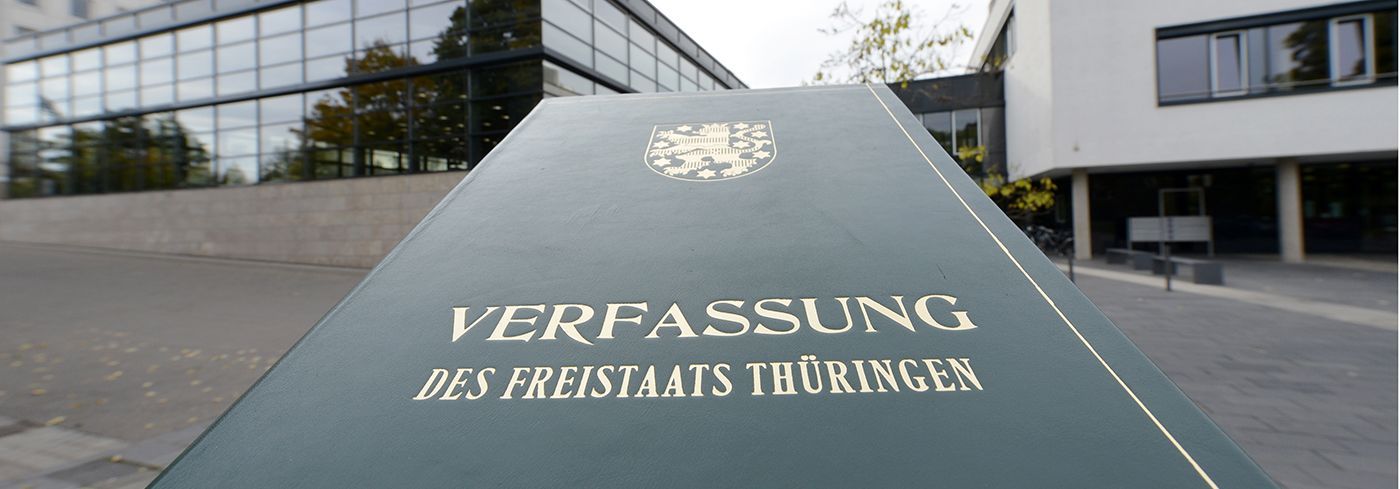
Constitution and Parliament
According to the German constitution and as interpreted by the German Federal Constitutional Court, federal states (the Länder) „are members of the federation with their own sovereignty, albeit limited in scope, which is not derived from the federal government but rather recognized by it". Following Article 44 of the state constitution (the Landesverfassung), the Free State of Thuringia explicitly describes itself as a state or "Land" of the Federal Republic of Germany.
Based on their status as federal states, the Länder have their own authority over the areas of legislation, administration and judicature. According to Article 45 of the Landesverfassung, state authority rests in the hands of the people. They exercise this authority in voting and elections and through the bodies appointed on the basis of the constitution. The Landtag or state parliament is the legislative body according to Article 47 of the Landesverfassung. Additionally, lawmaking can also be exercised directly by the people in the form of a referendum (Articles 81 and 82 of the Landesverfassung).
According to Article 70 of the German constitution, the Länder are entitled to make laws, as long as the Basic Law has not assigned legislative authority to the federal government. Correspondingly, the legislative power of the Landtag essentially extends to the following areas:
- Constitutional law (within the state),
- Administrative organization and procedures,
- Territorial arrangement,
- Budget of Thuringia,
- Education, training and cultural affairs,
- Police law and regulatory law,
- Municipal law,
- Media law.
While the primary task of the Landtag is to make laws, it is also charged with the following important tasks by the Landesverfassung as part of the parliamentary government system:
Electing the minister-president and checking the activities of the government of Thuringia as well as its subordinate state administration.
The Landtag is the highest democratic decision-making body of the state, elected by the people (Article 48 of the Landesverfassung). Moreover, the Landtag also represents a forum for political discussion to a certain extent. Citizens have an opportunity to inform themselves about the different political opinions through public plenary sessions and extensive coverage in the press, radio and television with regard to the activities of the state parliament.

